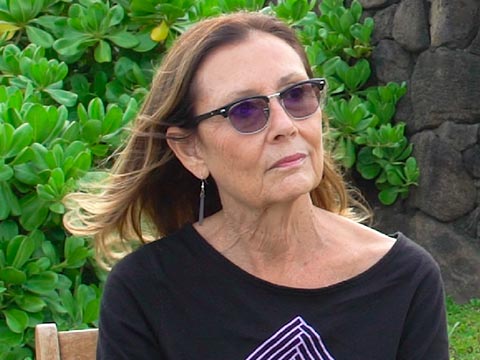
Noenoe K. Silva
Professor
Background
I was born on Oʻahu and am of Kanaka Maoli descent. I grew up in California and returned to Hawaiʻi nei in 1985. In 1991 I earned my bachelor’s in ʻŌlelo Hawaiʻi, and immediately began teaching the language here at UH Mānoa. In 1993 I completed a master’s degree in Library and Information Studies, and in 1999 earned my doctorate in political science. I joined the faculty of Political Science in Fall 2001, and now serve as professor. I teach courses in Native Hawaiian and Indigenous politics, as well as ʻŌlelo Hawaiʻi, including three courses that are cross–listed in Political Science and ʻŌlelo Hawaiʻi.
My publications concentrate on writing ʻŌiwi history from sources written by our own kūpuna in their own language, ʻŌlelo Hawaiʻi. Our lāhui has been damaged by the forces of colonialism, including the loss of ʻōlelo and the understanding of ourselves caused by that loss. I seek to undo some of this damage for current and future generations through this work.
My first book, Aloha Betrayed: Native Hawaiian Resistance to American Colonialism, published by Duke University Press in 2004, was elected the most influential book in Native American and Indigenous Studies in the first decade of the 21st century by the membership of the Native American and Indigenous Studies Association. My second book, The Power of the Steel-Tipped Pen, also published by Duke (2017), begins a concentration on specific authors of works in ʻōlelo Hawaiʻi. I am continuing that research with publications of journal articles and book chapters.
With Nanea Armstrong-Wassel I am co-editing a collection of work by Mary Kawena Pukui, including her journal articles published in the early-to-mid 20th century, and unpublished works from the Bishop Museum Archives. This is in production as a joint publication of Kamehameha Publishing and Bishop Museum Press.
Research Interests
I continue to be interested in recovering Kanaka Maoli political history and literature through reading texts in ʻŌlelo Hawaiʻi from the 19th and 20th centuries. I am interested in the possibilities of developing theory from within Hawaiian epistemologies and worldviews. My cross-listed course POLS-HAW 612, taught ma ka ʻōlelo kumu o ka ʻāina nei, concentrates on these possibilities. I am thrilled that many graduate students are using ʻŌlelo Hawaiʻi as an integral part of their research and that I have an opportunity to mentor such students.